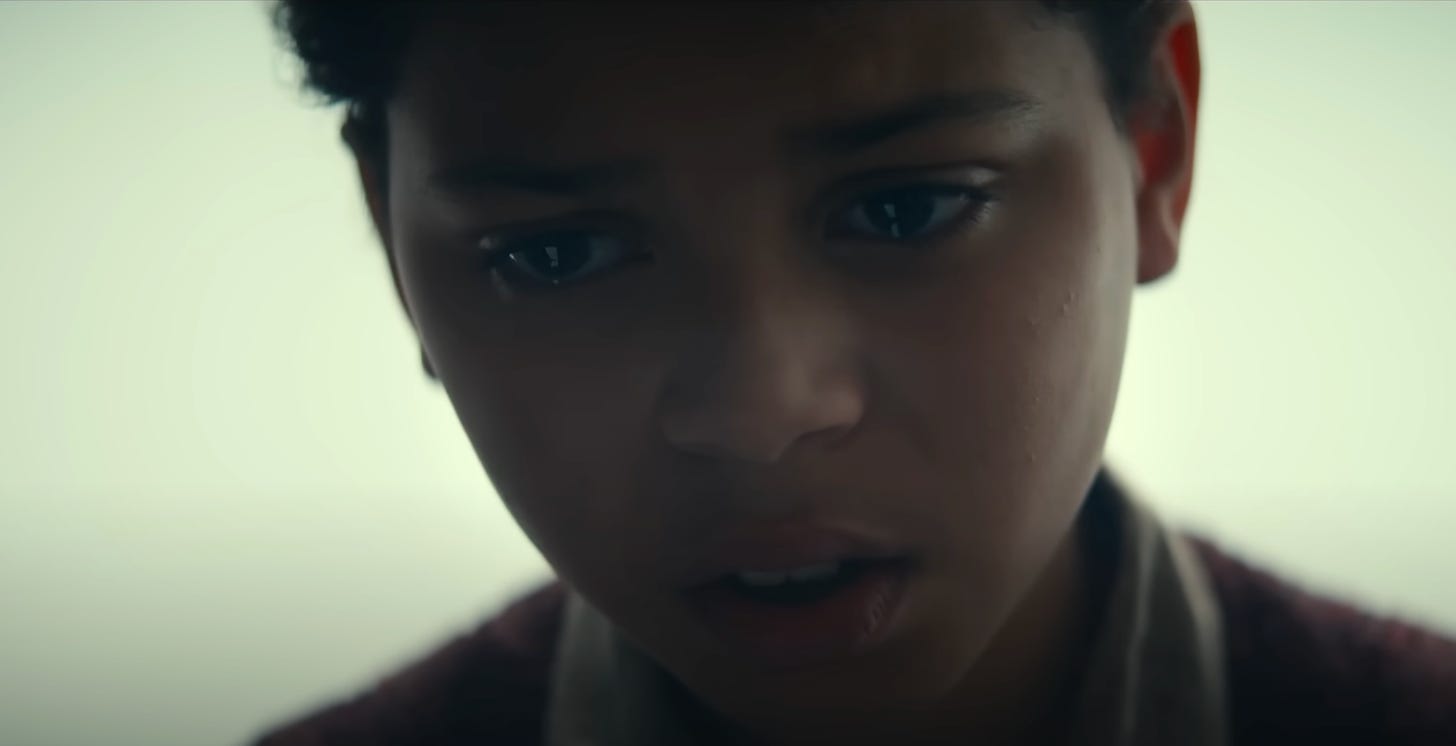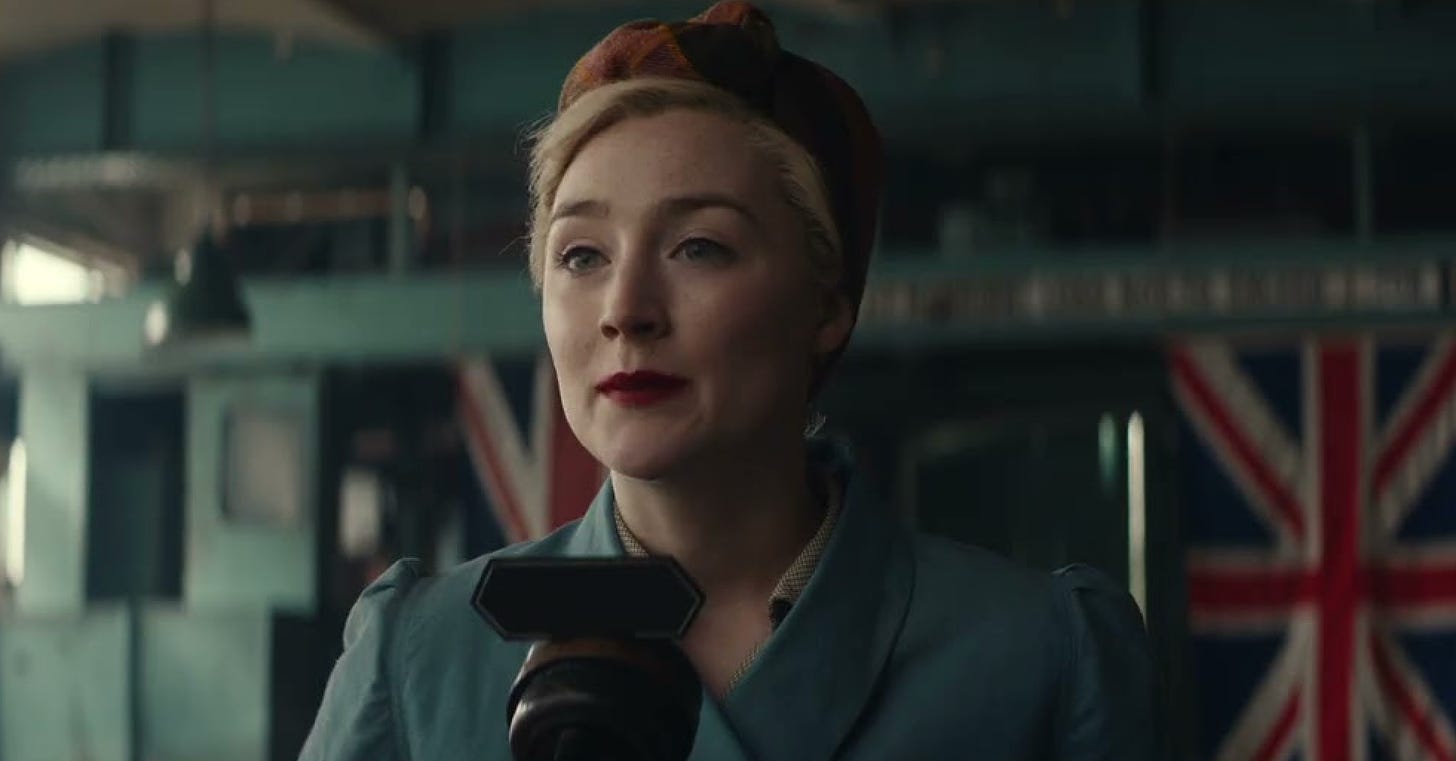Steve McQueen’s Blitz feels like a strange artistic compromise with film classification
Film review
British director Steve McQueen opens his World War Two drama with an impressive scene of soldiers trying to stabilise an out-of-control waterpipe that goes ballistic in a London neighbourhood. The scene is chaotic and energetic, throwing us into the midst of wartime. Yet, this is as dramatic as the scenes of war get in Blitz.
McQueen delivers a fairly safe WW2 tale following the two journeys of a separated mother and son. Rita (Saoirse Ronan), struggles to navigate daily life as her son George (Elliott Heffernan) is sent away on the trains, only to learn later that he escaped during the journey. We jump between the two characters as we follow George's journey back home to Stepney, east London.
The plot alone makes Blitz sound a tad fluffy, and in some respects it is. The film borders on the edge of fluffiness but manages to save itself from treading into the unbearable sentimentality of Kenneth Branagh’s Belfast (2022) or the all-too-light Churchill biopic Darkest Hour (2017). It does so by dipping its toes in darkness, as far as the boundaries can go for a BBFC rating of 12A.
The darkness mostly occurs in George’s journey, which thankfully is the film's main focus and where the most interesting stuff happens. George meets three other lost boys on his journey, and while it all starts off a bit too cute, McQueen isn’t afraid to break moments of comfort as their encounter ends in tragedy. A journey of disappointment follows for the young boy, as acts of kindness from strangers reveal themselves to be deceitful, leading him into the hands of a gang of thieves who exploit children. There’s a scene in which the gang members played by Stephen Graham and Kathy Burke, sit around a table in a bombed-out dining hall drinking fizz and playing with the dead corpses. Another moment of darkness occurs as George witnesses two adults having sex under the sheets whilst taking shelter in the London Underground (McQueen stays within the 12A classification boundary by only showing the couple's feet).
However, these examples of darkness still feel all too family-friendly for a McQueen take on wartime, especially following Hunger (2008), and 12 Years a Slave (2013), both stamped with a BBFC rating of 15. These works from the director didn’t shy away from showing the reality of the brutality from those chapters in history. Creating a soft-touch war piece is a surprise from McQueen, even if it is largely centred on a child.
Blitz shifts its tones from light to dark, giving more preference to exposure of the former. This comes out strongest in Rita’s story, who doesn’t seem to be suffering too badly despite her separation from George. She has the honour of singing on the BBC airwaves and participating in activism with her female colleagues which include Hayley Squires (I, Daniel Blake). She also has somewhat of a love interest with a soldier played by Harris Dickson (Triangle of Sadness). However, none of these characters shine bright or reward you with great interest. The star of the show is George with eleven-year-old Heffernan delivering the best performance in the film.
The children are the stars of this film. But should a story that’s predominantly told through the perspective of a child translate into a work that's appropriate for a young audience? Not particularly. Especially during wartime. Take the 2019 adaptation of The Painted Bird for example. A story that follows a lost young Jewish boy, wandering through Eastern Europe during the Second World War, encountering the most sinister exposures of humanity.
McQueen shows some of the horrors of war but through the lens of the BBFC hovering over him. The commercial tone throughout is quite startling, giving the impression of artistic censorship from the filmmaker or at least a diversion from the style that we’re used to from him. Although there's still a competent story here there’s an urge throughout Blitz to peel back the skin, exposing more of the reality that he’s willing to show from his former works. This is by far one of his least impressive contributions to cinema.
Out in UK cinemas today




